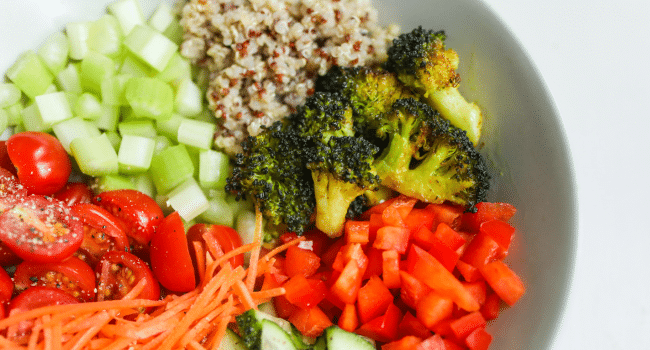Table of Contents
As pet owners, we want what’s best for our furry friends. One of the most important aspects of pet care is maintaining a healthy diet for our beloved dogs. In this article, Buddy’s Dog Den will share valuable guidelines to help you feed your pooch a balanced and wholesome meal.
Consult With Your Vet
Before formulating a diet plan for your dog, it is essential to consult with your veterinarian. Your vet can guide you on the nutritional requirements of your dog based on their breed, age, and any underlying health conditions they may have. Your vet can also recommend specific diets or supplements that can help keep your dog healthy.
Choose A Quality Dog Food
Not all dog foods are created equal. It is crucial to opt for high-quality dog food. Ideally, the first ingredient on the label should be a protein source like chicken, beef, or fish. Avoid dog food that contains fillers like corn, soy, and wheat, as these ingredients offer little to no nutritional value.
Avoid Human Foods
While sharing your food with your furry friend can be tempting, it is best to avoid human foods altogether. Human food can contain ingredients like garlic, onion, and chocolate, which can harm dogs. Feeding your dog table scraps can also lead to obesity, a significant health concern for dogs.
Portion Control
Portion control is crucial when it comes to feeding your dog. Overfeeding can lead to obesity, which can cause health issues such as heart disease and joint problems. Follow the feeding guidelines on your dog’s food packaging and adjust according to your dog’s activity level and age.
Consider Your Dog’s Age
As dogs age, their nutritional needs change. Puppies need more protein and fat to support their growth and development, while senior dogs need fewer calories to maintain a healthy weight. Consult with your veterinarian on adjusting your dog’s diet as they age.
Provide Fresh Water
Always make sure your dog has access to fresh, clean water. Dehydration can lead to health issues such as kidney problems and urinary tract infections. Change your dog’s water bowl daily, and make sure to clean it regularly to prevent the buildup of bacteria.
Treats In Moderation
Treats are a fantastic way to bond with your dog and reward good behavior. However, it is crucial to offer treats in moderation. Treats should not exceed 10% of your dog’s diet. Opt for treats that are low in calories and free from harmful additives like preservatives and artificial colors.
Know The Signs Of An Unhealthy Diet
Knowing the signs of an unhealthy diet can help you adjust your dog’s food regime. Common signs of an unhealthy diet include obesity, digestive problems such as diarrhea and constipation, and a lack of energy. If you notice any of these symptoms in your dog, consult with your veterinarian on how to change their diet.
Include Variety In Your Dog’s Diet
Dogs can get bored with the same food every day. Adding variety to their diet can help keep them interested and excited about their meals. Rotate between proteins such as chicken, beef, and fish, and offer a mix of dry and wet food. However, introduce new foods gradually to prevent any digestive upsets.
Monitor Your Dog’s Weight
Regular weigh-ins can help ensure your dog maintains a healthy weight. Sudden weight gain or loss can indicate underlying health issues and should be addressed with your vet.
Bone Health
Calcium is vital for dog health, particularly for growing puppies and senior dogs. Consult with your vet about suitable sources of calcium for your canine friend.
Seasonal Adjustments
Your dog’s dietary needs can change with the seasons. For instance, during colder months, they may require more calories to maintain body heat. Adjust their diet accordingly, and always consult with your vet if unsure.
Food Allergies
Some dogs may develop allergies to specific ingredients in their food. Symptoms can include skin irritation, digestive issues, and lethargy. If you suspect a food allergy, consult your vet for a suitable diet plan.
Exercise And Diet
Exercise is vital to your dog’s health and can impact their dietary needs. Active dogs typically require a diet higher in protein and overall calories to fuel their energy levels, while less active dogs will need fewer calories to avoid weight gain.
Dental Health
Certain foods and treats can help keep your dog’s teeth clean and healthy. Dental chews can reduce plaque and tartar buildup, while a diet high in crunchy kibble can provide a natural tooth-brushing effect.
Conclusion
Buddy’s Dog Den can tell you how your dog’s diet is crucial to their health and well-being. By following these guidelines, you can ensure that your furry friend is receiving a balanced and wholesome diet. Always consult with your veterinarian, feed high-quality dog food, offer treats in moderation, and provide fresh water. With proper care and nutrition, your dog can enjoy a long, happy, and healthy life with you.
Read More on KulFiy
What are the Nutrients Required for Maintaining Joint Health?
